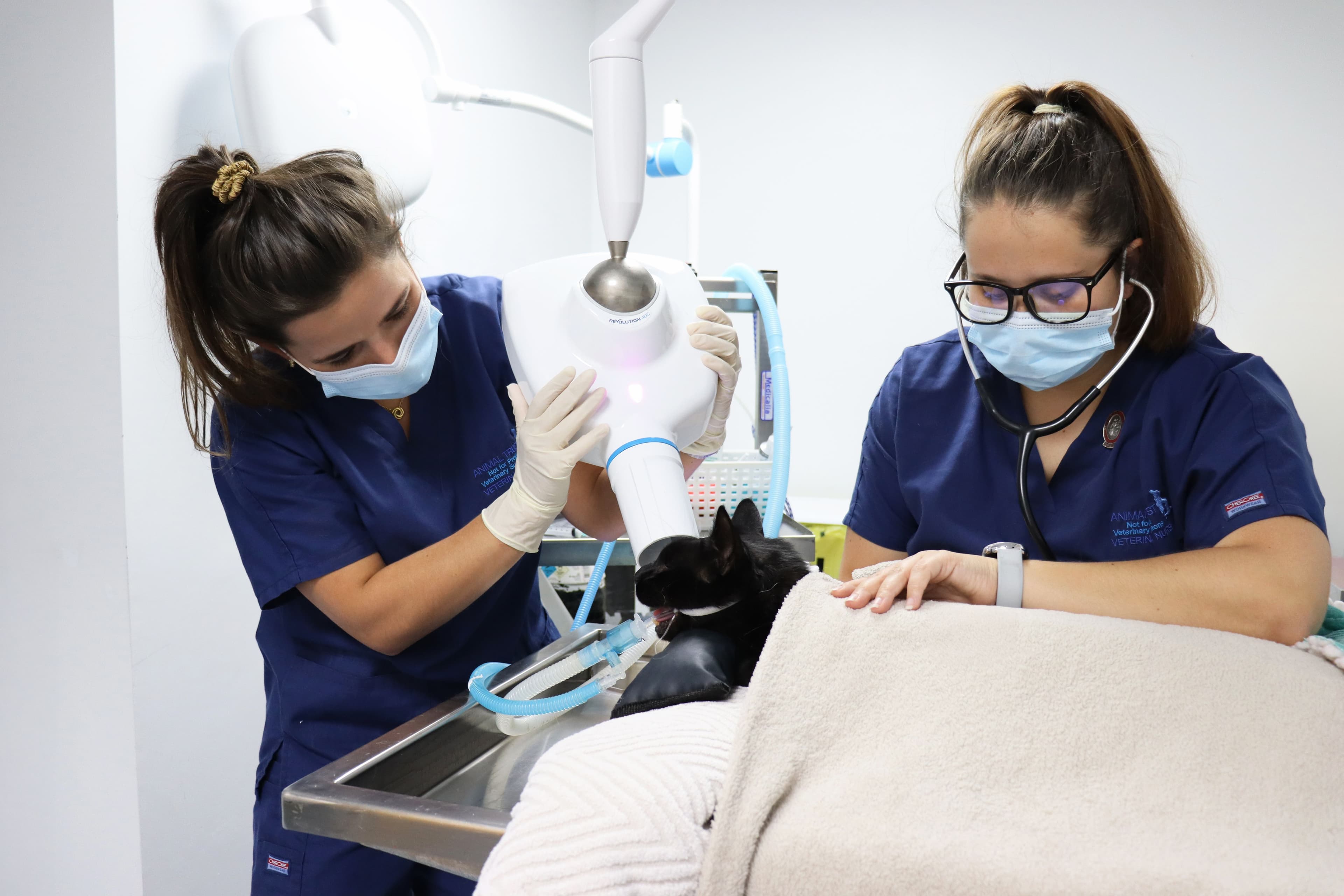Post Operative Care: Dentistry

Looking After Your Pet After An Anaesthetic
It can take a while for the drugs used in an anaesthetic to leave the body – your pet may be sleepier than normal for 12-24 hours after their anaesthetic. This is usually nothing to be concerned about, however they should be able to get up and walk around when stimulated, and, if not, please call the surgery as this may indicate that they require veterinary attention.
You should keep your pet indoors for the rest of the day, in a warm, quiet place. This is because an anaesthetic procedure can affect animals' ability to regulate their temperature.
Occasionally, a slight cough will be noted after surgery, this is normally due to irritation caused by the endotracheal tube that is used in the anaesthetic and should resolve within 48 hours.
Wound Care
Your pet's teeth will have been cleaned under general anaesthetic. This helps to restore oral health and is a procedure that allows us to clean below the gumline, as well as the exposed crowns. We will have extracted any teeth which are significantly damaged or are suffering from significant periodontal disease. If teeth have been extracted, it is common that you may see some slightly blood tinged saliva for a few days. Pets may be sore at the site of extractions, and it is advisable to avoid playing with any hard toys for 7-10 days post-surgery. This is particularly important if any stitches have been placed in the mouth.
If there are any signs of discharge, bad smells or significant discomfort then please contact us.
Medication
Please follow carefully the instructions on the label of any medications supplied. If you are having difficulty getting your pet to take medications, please contact us.
We give pets injections of painkillers at the time of the surgery, which will usually last for several hours; if your pet still appears be in pain then please contact us.
We also provide anti-inflammatory painkillers to be given by mouth for several days post-surgery. Please follow the instructions on the label carefully. The most commonly provided pain killer is a liquid which is given ONCE daily in food, or with food, using the dosing syringe that is provided in the packet. It is important to note that only the specific dosing syringe provided should be used for any particular medication. If any vomiting or diarrhoea occurs while using this medication then please do not give any more, and contact the surgery. Most patients are given an injection of this drug on the day of the surgery and, therefore, unless advised otherwise at the discharge appointment, the medication should not be given at home until the next day.
Antibiotics are not usually required after dental procedures, but may be used occasionally if there is significant infection present. If you have been prescribed antibiotics, please ensure that you give the full course, as advised.
Feeding
We will offer your pet a small meal after surgery (unless you have advised us not to), but they should also be offered a small meal at home (they can usually be fed their normal food but in order to prevent trauma to the cavities that remain after any extractions, we recommend that you soften your pet’s food for the next few days.).
If they do not eat at home the evening of the surgery, in most cases you do not need to be overly concerned, but their appetite should return within 24 hours – if not then please contact us for further advice.
Preventing reoccurrence of dental disease can be aided by feeding food that is designed to minimise tartar build up. Specialist dental diets can be beneficial for many patients who are prone to dental problems. It is also important to brush your pet's teeth regularly. If you would like to be shown how to clean your pet’s teeth, then please make an appointment with one of our nurses who would be pleased to show you how to do it.
Exercise
It is advisable to keep your pet rested for 24 hours after an anaesthetic, and if teeth have been extracted then it would be advisable to avoid any rough play for around a week after the procedure.
In Case of An Emergency
If you have a concern that requires urgent attention please contact us at the surgery. If it is out of normal surgery hours, listen carefully to the instructions which will direct you to the veterinary surgeon on duty.
It is particularly important that you notify us immediately if your pet becomes very quiet, seems in pain, goes pale or if you notice any significant bleeding.
